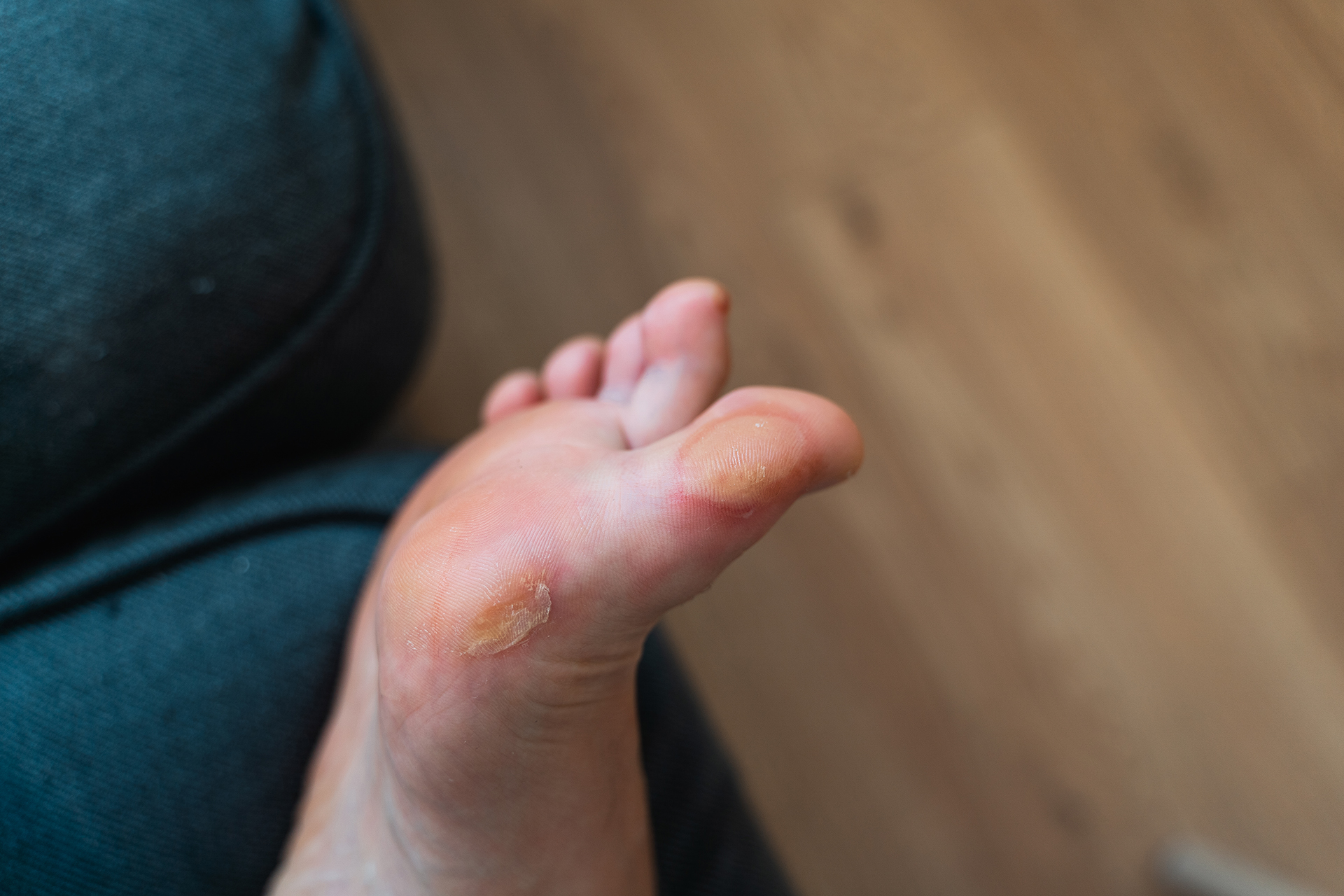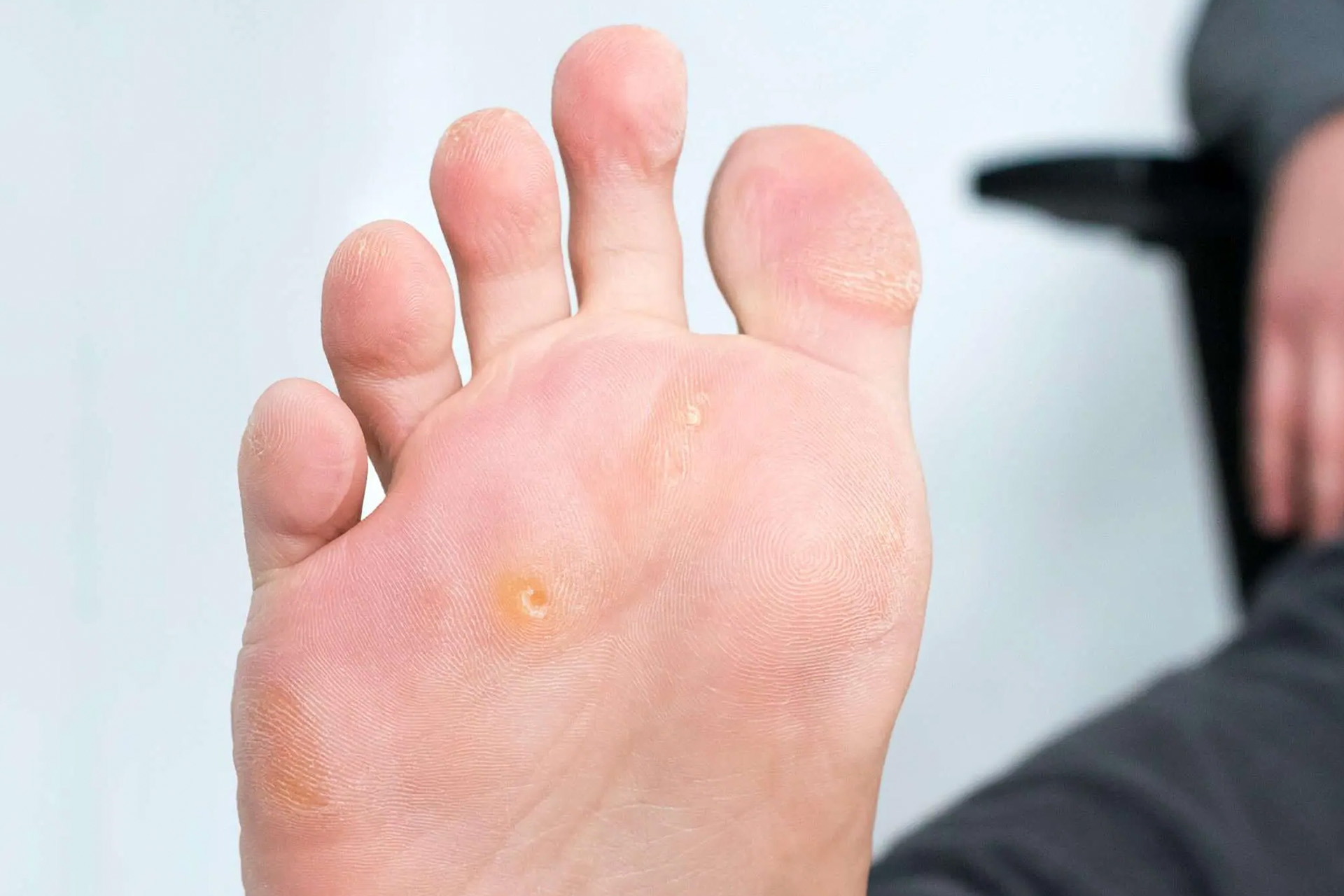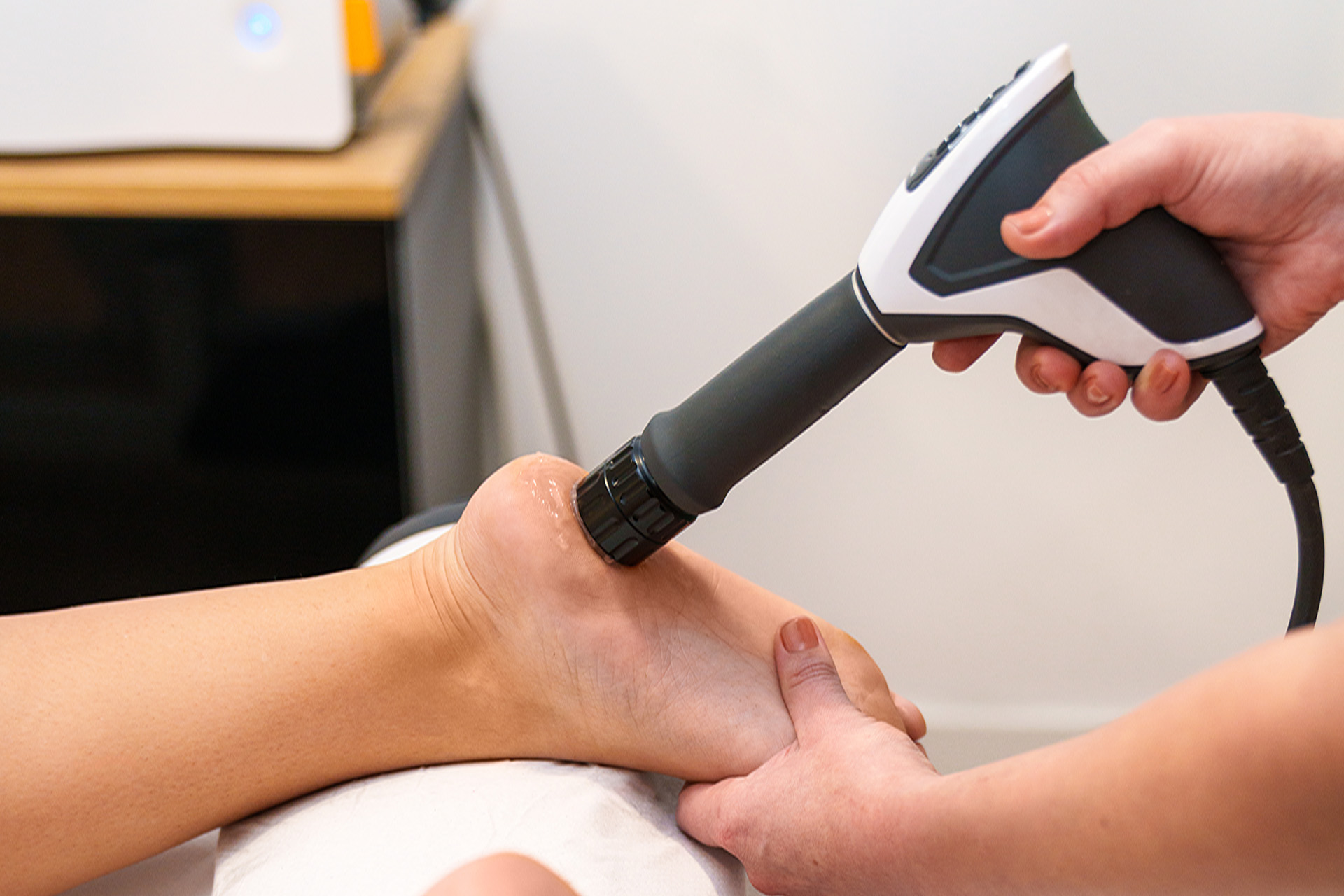Plantar fasciitis is one of the most common overuse injuries in runners. It causes persistent heel pain and stiffness, interfering with training routines and overall performance. Plantar fasciitis occurs when the plantar fascia – a thick band of tissue supporting the foot arch – becomes irritated, inflamed, or torn due to repetitive stress. Running can be a source of this repetitive stress, which explains the condition’s high prevalence among runners.
The plantar fascia absorbs significant force with every stride, and improper biomechanics or training errors can exacerbate the strain. Understanding the causes and treatments for plantar fasciitis is crucial for any runner looking to recover from and prevent this debilitating injury.
What Causes Plantar Fasciitis in Runners?
Plantar fasciitis is often the result of multiple contributing factors, ranging from foot structure to training habits. Common causes include:

- Biomechanical Issues: Excessive pronation (rolling inward of the foot), flat feet, or high arches (cavus foot) can increase stress on the plantar fascia.
- Tight Achilles Tendon: Limited flexibility in the Achilles tendon or calf muscles can strain the plantar fascia more.
- Improper Footwear: Running shoes that lack proper arch support or cushioning may fail to absorb impact effectively, leading to overloading of the fascia.
- Training Errors: Sudden increases in mileage or intensity or running on uneven surfaces can overload the plantar fascia.
While these factors may not cause immediate pain and may feel ignorable for many runners, over time they can lead to irritation, inflammation, and, eventually, the characteristic heel pain of plantar fasciitis. There is no single way to prevent plantar fasciitis pain when running, but addressing these concerns can go a long way towards better foot health.
Can I Still Run with Plantar Fasciitis?
One of the most common questions runners ask is whether they can continue running with plantar fasciitis. The answer largely depends on the severity of the condition.
For mild cases, reducing mileage, avoiding high-impact workouts, and using proper footwear or orthotics may allow runners to continue their routine while managing symptoms. However, pushing through severe pain can worsen the condition and prolong recovery. Even if the start of the run feels good, if you experience plantar fasciitis pain after running, take that as a sign that your body is not ready. It’s critical to listen to your body and consult a healthcare professional, such as a podiatrist, to determine the best approach.
If running is causing significant pain, taking a break to focus on recovery is often the best course of action. Alternative low-impact exercise forms like swimming or cycling can help maintain fitness without aggravating the plantar fascia.

Plantar Fasciitis Running Treatment
Thankfully, runners dealing with plantar fasciitis have access to a range of management strategies, many of which can be guided by a podiatrist. At the Foot Practice, our podiatrists will develop a holistic intervention plan, utilising different techniques for a comprehensive approach to recovery.
1. Shockwave Therapy
Shockwave Therapy is a non-invasive therapy that uses acoustic waves to stimulate healing in the plantar fascia. It promotes blood flow, reduces inflammation and accelerates tissue repair, making it an effective option for runners seeking relief from persistent pain caused by plantar fasciitis.
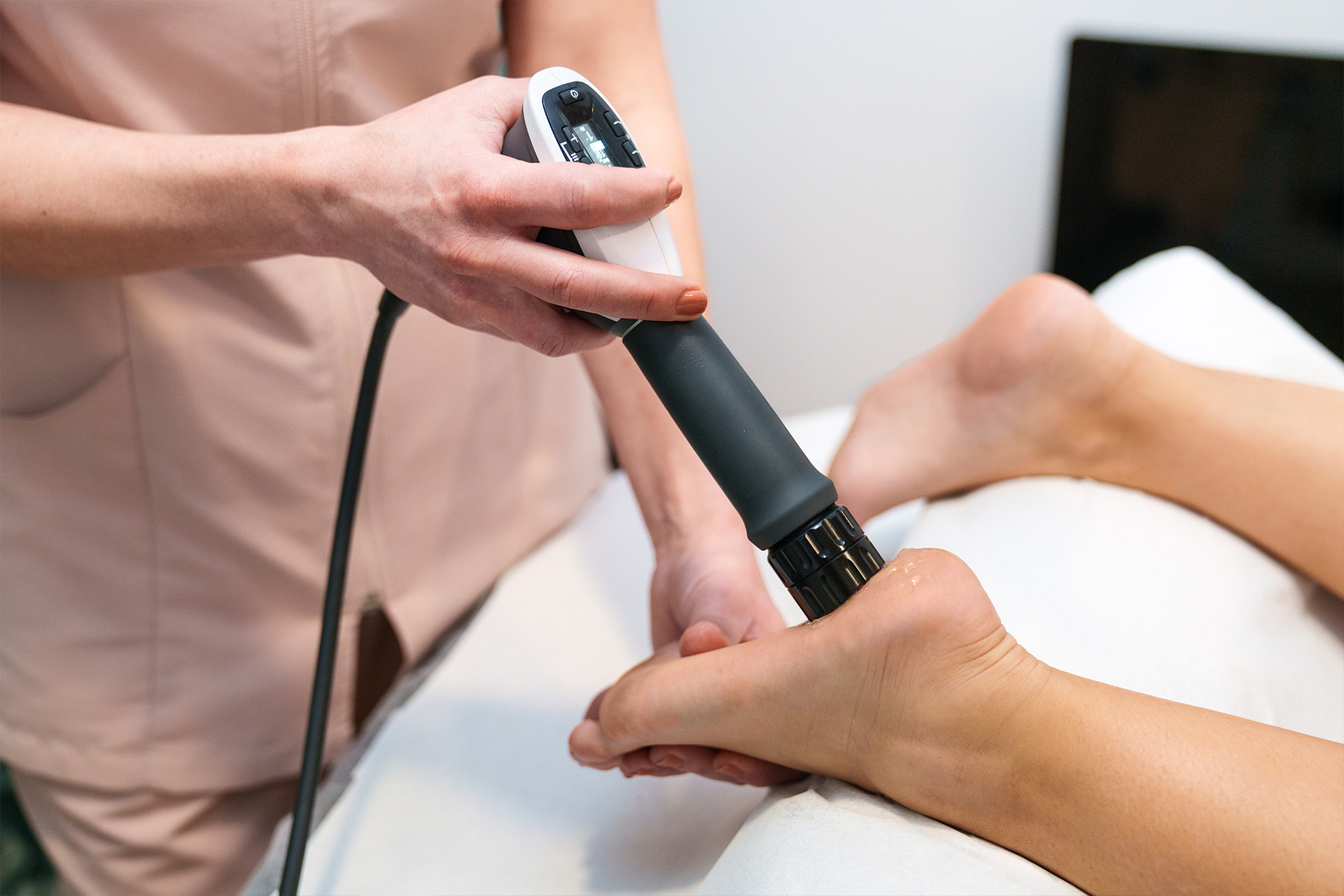
2. Orthoses
Custom orthoses, or shoe inserts, are designed to provide proper arch support, distribute pressure evenly across the foot, and improve alignment. By addressing underlying biomechanical issues, orthoses not only relieve pain but also help prevent the recurrence of plantar fasciitis. Unlike over-the-counter insoles, custom orthoses are tailored to your foot structure and running style, ensuring optimal support and comfort.
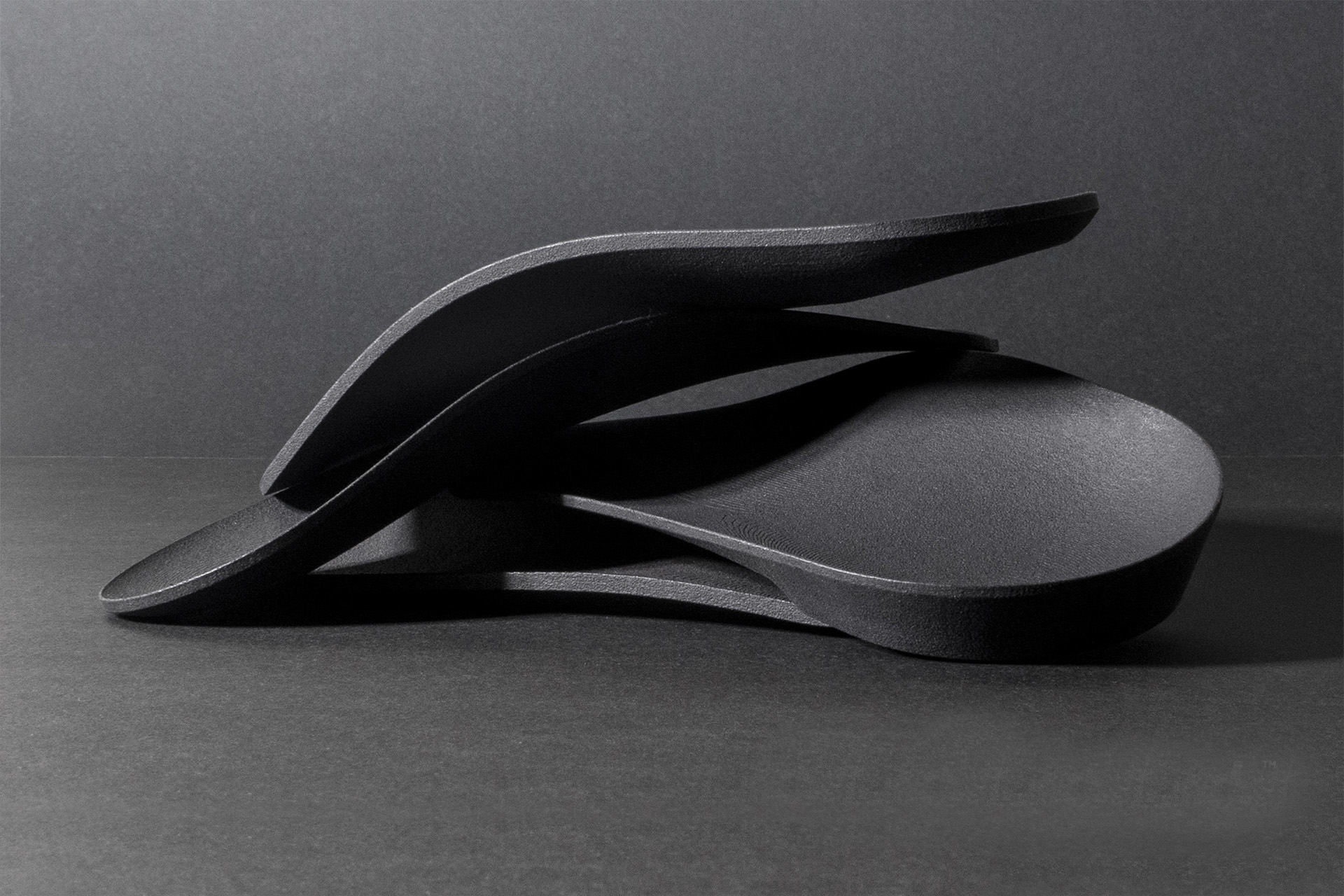
3. Prescribed Exercises
Stretching and strengthening exercises play an important role in managing plantar fasciitis. A podiatrist can prescribe specific exercises to stretch the plantar fascia and Achilles tendon to improve flexibility and strengthen the foot and lower leg muscles to enhance stability and reduce strain on the fascia. Consistent practice of these exercises can alleviate pain, improve mobility, and support long-term recovery.

4. Rest and Recovery
For runners with severe plantar fasciitis, rest is essential. Allowing the tissue to heal by reducing activity levels can prevent further damage and speed up recovery. During this time, icing the affected area and elevating the foot can help manage inflammation.
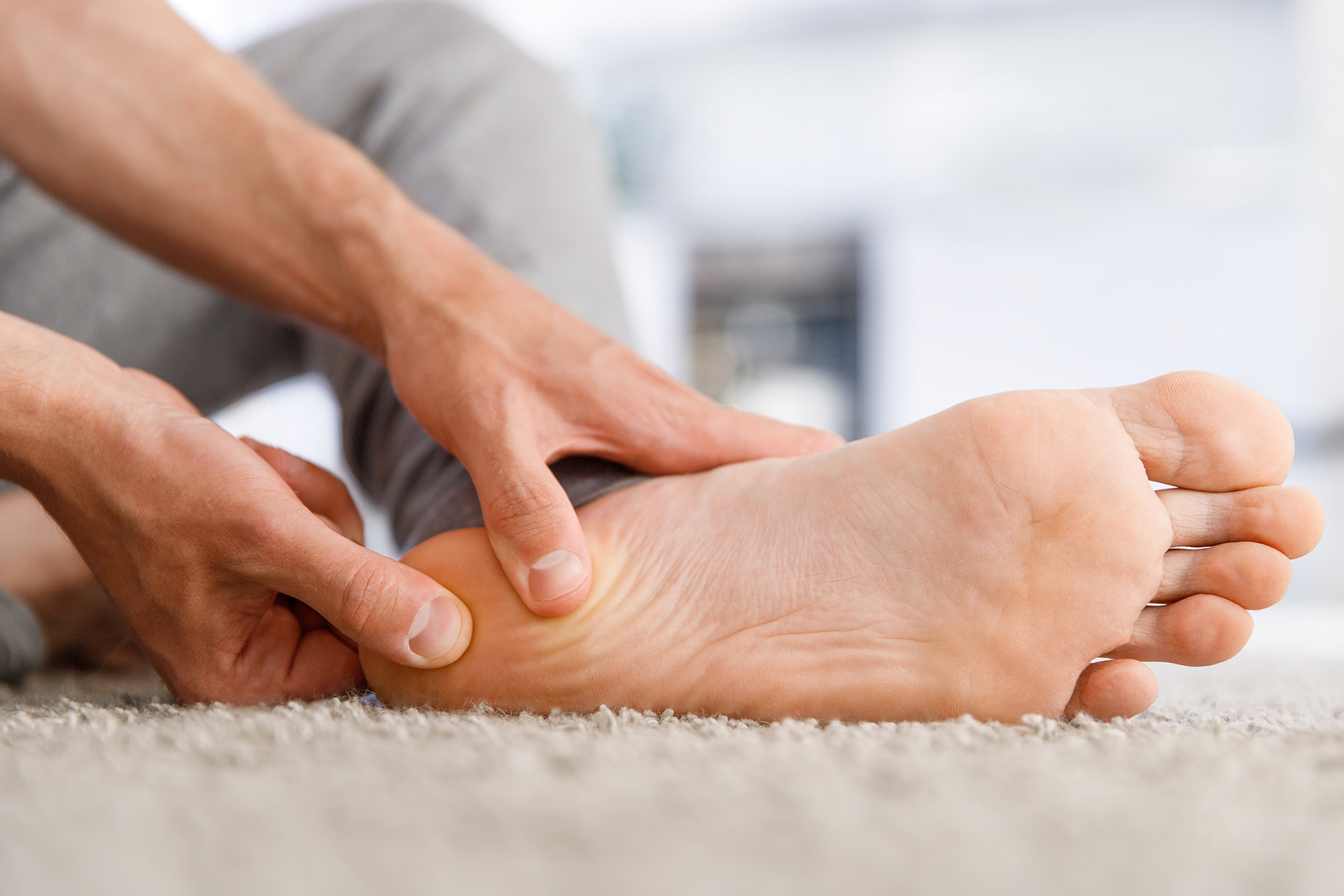
Preventing Plantar Fasciitis in Runners
Prevention is always better than treatment, especially for a condition as disruptive as plantar fasciitis.
Runners can reduce risk by taking proactive measures, like choosing proper footwear. This small investment in running shoes with adequate arch support and cushioning can have long-term benefits. Worn-out shoes should be replaced regularly to maintain proper shock absorption.
Runners should also incorporate exercises to improve flexibility and strength in the feet, calves, and Achilles tendons. Importantly, runners should adhere to a gradual training plan that avoids sudden increases in mileage or intensity. Gradual progression allows the plantar fascia to adapt to new demands.
Lastly, a biomechanical evaluation with a podiatrist can help identify and correct issues before they lead to injury.
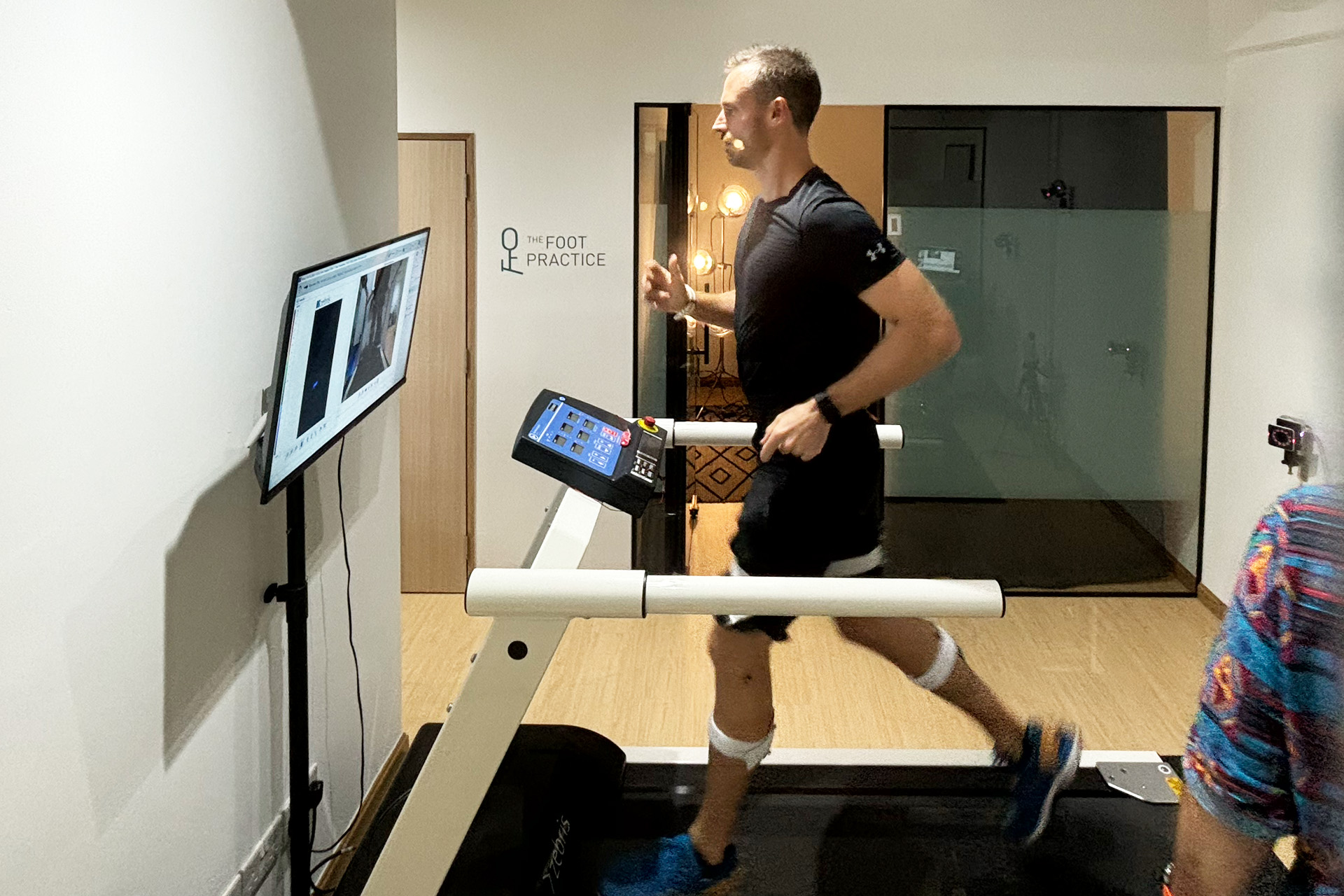
See a Podiatrist if You Are Experiencing Plantar Fasciitis Pain
Podiatrists play a vital role in diagnosing and treating plantar fasciitis, particularly in runners. Their expertise in foot mechanics and gait analysis enables them to pinpoint the condition’s root cause and develop a tailored management plan.
The Foot Practice uses advanced tools, such as 3D foot scanners and pressure-mapping systems, to assess your foot structure and running patterns. This data is then used to design custom orthoses, recommend appropriate footwear, and prescribe targeted exercises to manage plantar fasciitis and prevent its recurrence.
If you’re experiencing heel pain or suspect plantar fasciitis, don’t wait. Schedule an appointment with a podiatrist to get the care you need and take the first step toward recovery.


